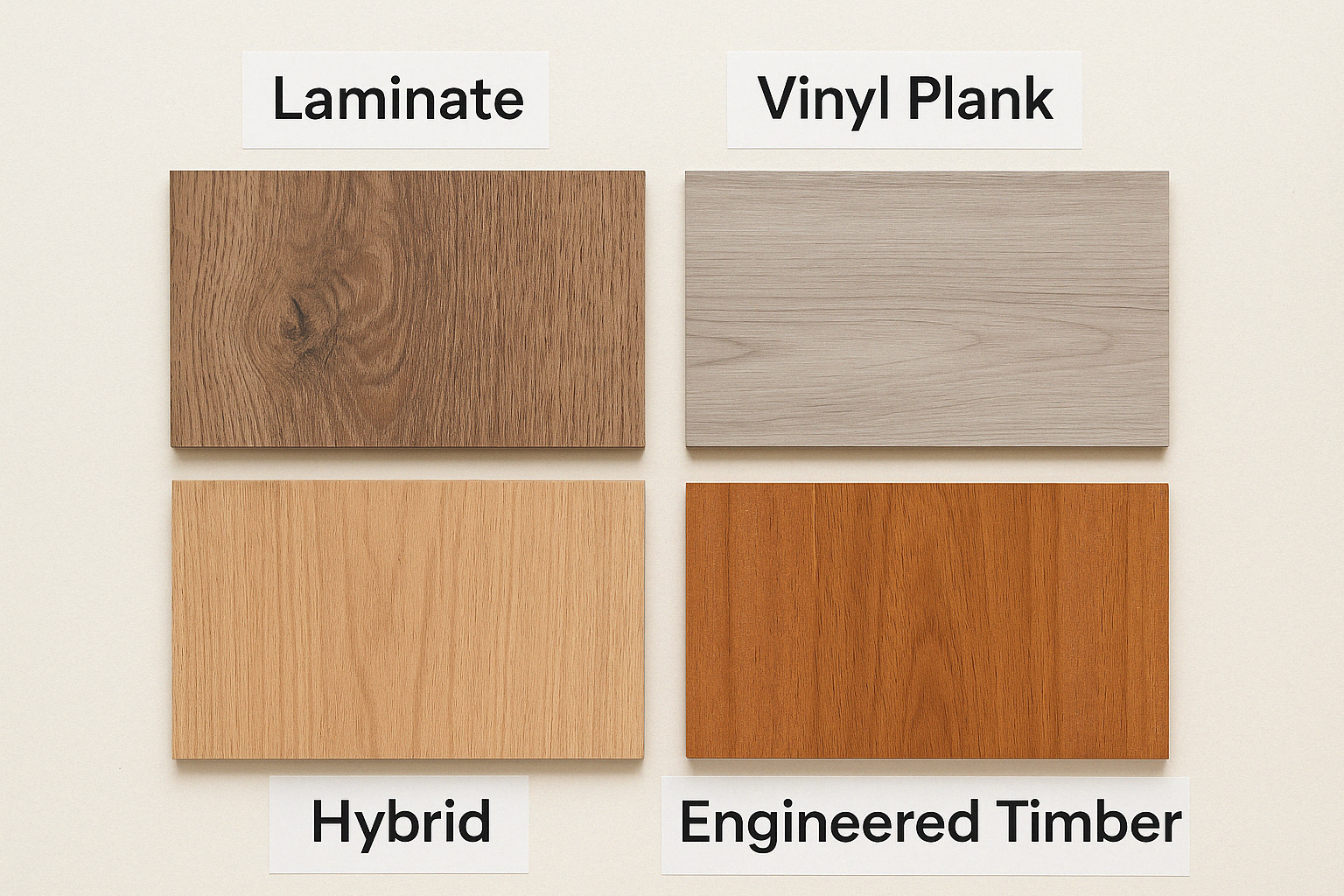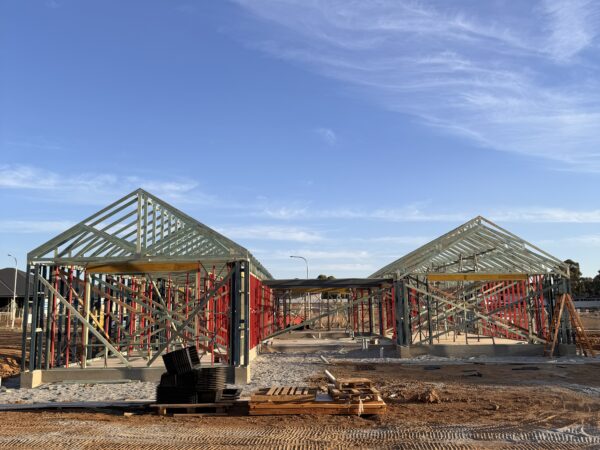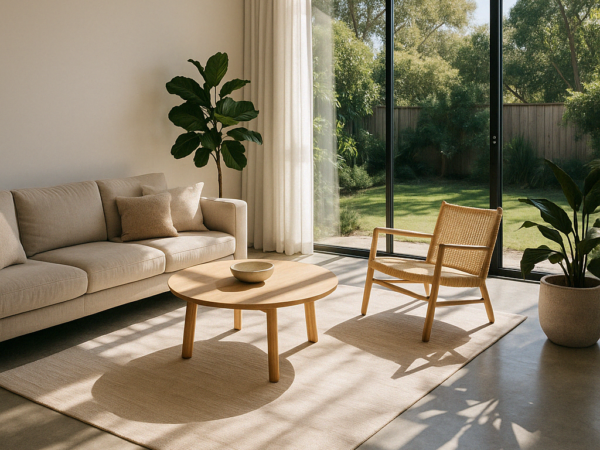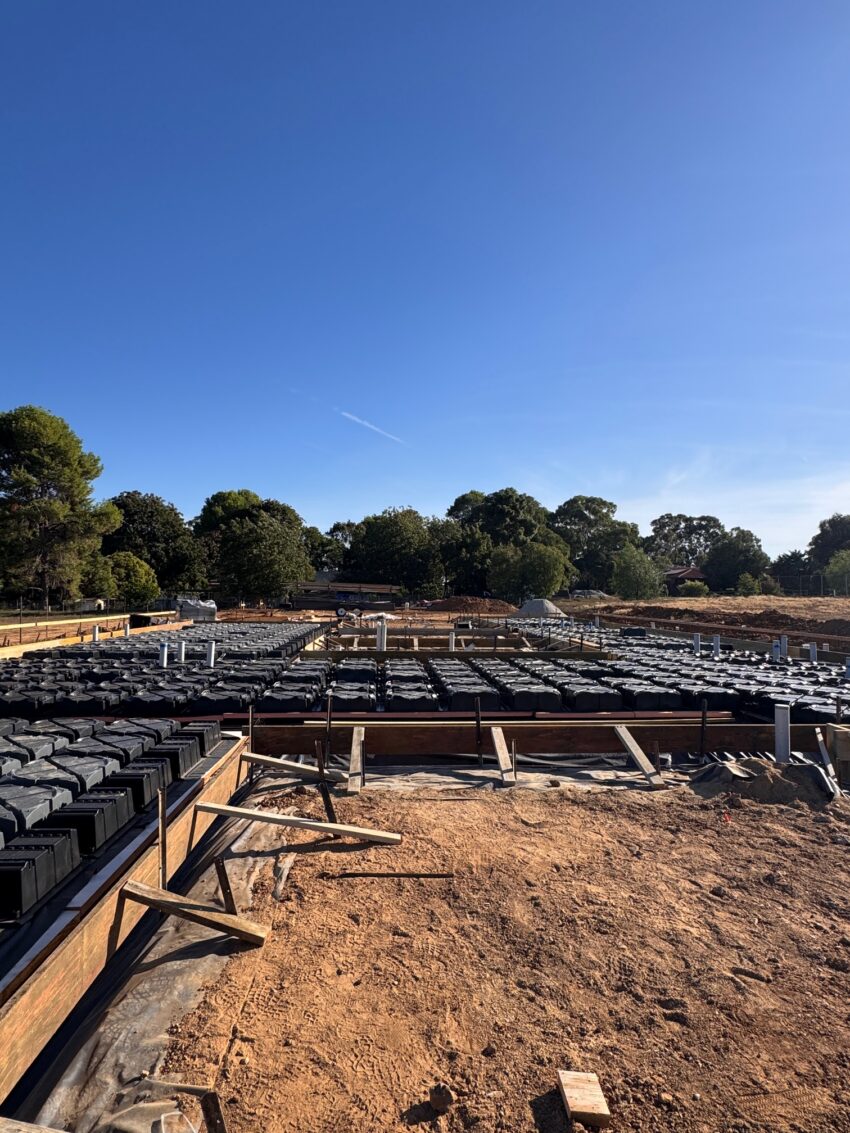imber-look flooring has come a long way, and if you're building or renovating, it's easy to get overwhelmed with the options. Laminate, vinyl planks, hybrid, engineered timber—they all look similar at a glance, but there are some big differences when it comes to price, feel, and suitability for different rooms. Here’s a simple breakdown to …
imber-look flooring has come a long way, and if you’re building or renovating, it’s easy to get overwhelmed with the options. Laminate, vinyl planks, hybrid, engineered timber—they all look similar at a glance, but there are some big differences when it comes to price, feel, and suitability for different rooms.
Here’s a simple breakdown to help you understand which one might be right for your home.
1. Laminate Flooring
Budget-friendly, DIY-friendly, and scratch-resistant
Laminate is a popular choice for good reason—it’s one of the most affordable timber-look options and is relatively easy to install as a DIY project. It’s made from high-density fibreboard with a printed surface layer that mimics timber.
Good to know: Laminate can feel hard underfoot and often sounds hollow unless installed with quality underlay. It doesn’t cope well in wet areas, so best to avoid using it in bathrooms or laundries.
2. Vinyl Planks
Mid-range cost, soft underfoot, and DIY-friendly
Vinyl planks are a step up from laminate in terms of comfort, with a softer feel and a bit of give underfoot. They’re also relatively easy to lay yourself, and come in a huge range of colours and finishes.
Good to know: While vinyl is water-resistant, the joins between planks can allow moisture through over time. A smooth, level subfloor is essential, or you’ll see every bump and dip.
3. Hybrid Flooring
Mid-to-high price point, realistic timber look, and highly durable
Hybrid flooring is exactly what it sounds like—a blend of vinyl and laminate. It combines the best of both worlds: the durability and stability of laminate, with the more flexible, water-tolerant surface of vinyl.
Good to know: Hybrid boards are rigid and stable, which makes them great for large open-plan spaces. However, they’re a bit trickier to install than vinyl or laminate, so consider getting a professional if you’re not confident.
4. Engineered Timber Flooring
Premium price, natural timber feel, professional installation recommended
If you want the warmth and authenticity of real timber but without the full solid timber price tag, engineered timber is a great option. It features a real timber veneer on top of a stable plywood or composite base.
Good to know: Some engineered timber floors can be sanded and refinished once or twice over their lifetime, adding to their longevity. They’re not DIY-friendly and need professional installation to get the best result.
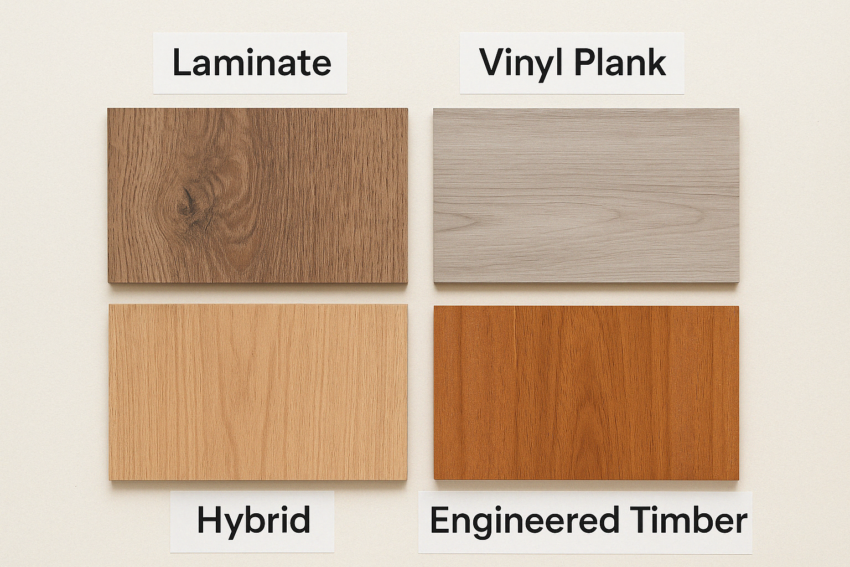
So, Which One is Right for You?
If you’re working to a tighter budget or want a flooring option you can install yourself, laminate or vinyl planks are solid choices. If you’re after something more durable and long-lasting, hybrid flooring might be the sweet spot. And if you’re dreaming of that high-end, authentic timber finish, engineered timber is well worth the investment.
Still not sure what’s best for your space? I help clients choose flooring every day as part of my design services—get in touch if you’d like support picking the right option for your lifestyle, budget, and home.
Be the first to read my stories
Get Inspired by the World of Interior Design
Thank you for subscribing to the newsletter.
Oops. Something went wrong. Please try again later.

